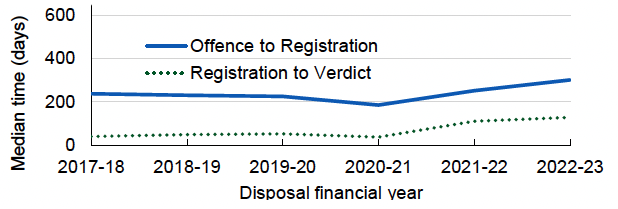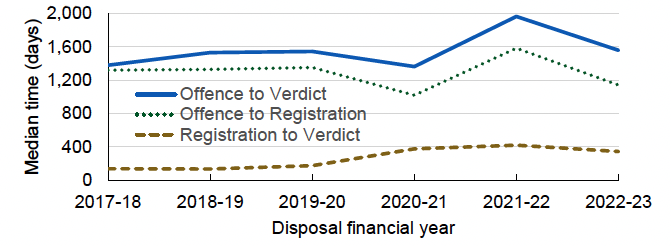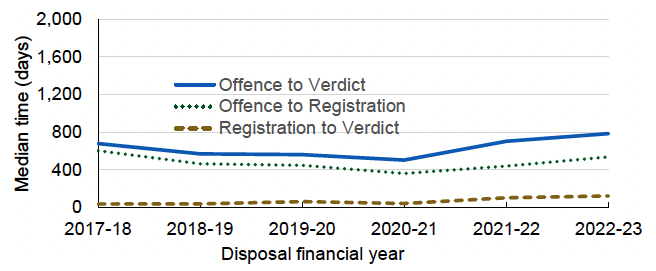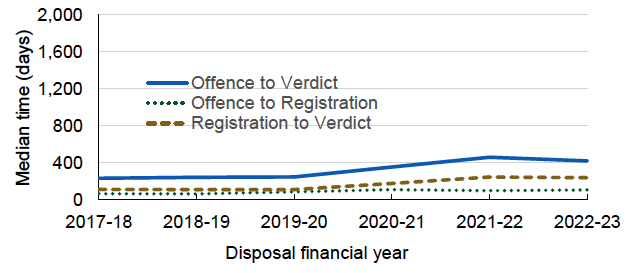Justice Analytical Services (JAS) Safer Communities and Justice Statistics Monthly Data Report : September 2023 edition
This report contains summary statistics covering a number of important justice and safer communities statistics. It is published with up to date statistics every month.
Justice Journey Times
Summary statistics on journey times in the Scottish criminal justice system
- COVID-19 impacted the journey times in the Scottish Criminal Justice system. Before the COVID-19 pandemic (up to and including 2019-20), 90% of accused reported to COPFS which were not marked for prosecution in court had their cases closed within one year of the offence being committed. This has fallen to 81% in the years during and following the pandemic. The same happened for accused prosecuted in criminal courts, during the pre COVID-19 period, 84% of the accused proceeded against in criminal courts had a disposal issued within one year of the offence being. However, since the beginning of the COVID-19 pandemic this percentage has decreased to 61%.
- Median journey times (from offence date to case closed) for cases closed by COPFS increased post pandemic and were longer for accused marked as "No Action". In 2022-23, median journey times for accused persons with a COPFS "No action" marking were around 11 weeks longer than for accused persons marked for direct measures (e.g. a warning letter or a fiscal fine).
- Median journey times for accused prosecuted by courts (from offence date to verdict) increased post pandemic. Across all court types, median journey times of accused persons increased in 2021-22 (post pandemic) when compared to 2019-20 (pre pandemic). Furthermore, except for Justice of the Peace (JP) courts, all other court types saw an additional increase in median journey times over the latest financial year 2022-23. Median journey times for accused persons in solemn cases were longer than those for accused in summary cases.

- The time associated with different parts of an accused person's journey in the justice system varies depending on the type of court their case is allocated. Median offence to registration time for accused persons in High court were around 21 months and median registration to verdict time were 11 months; offence to registration time in Sheriff solemn court were around 10 months compared to 4 months for registration to verdict. In contrast, for sheriff summary courts registration to verdict times are in general longer than offence to registration times - median offence to registration journey times were around 2 months compared to a median of about 6 months for registration to verdict.




- There were differences in accused persons' journey times depending on the type of crime on registration. The longest journey times were observed for accused persons charged with at least one sexual crime and prosecuted in High court – with a median time of around four years in 2022-23.



Contact
Email: Justice_Analysts@gov.scot
There is a problem
Thanks for your feedback